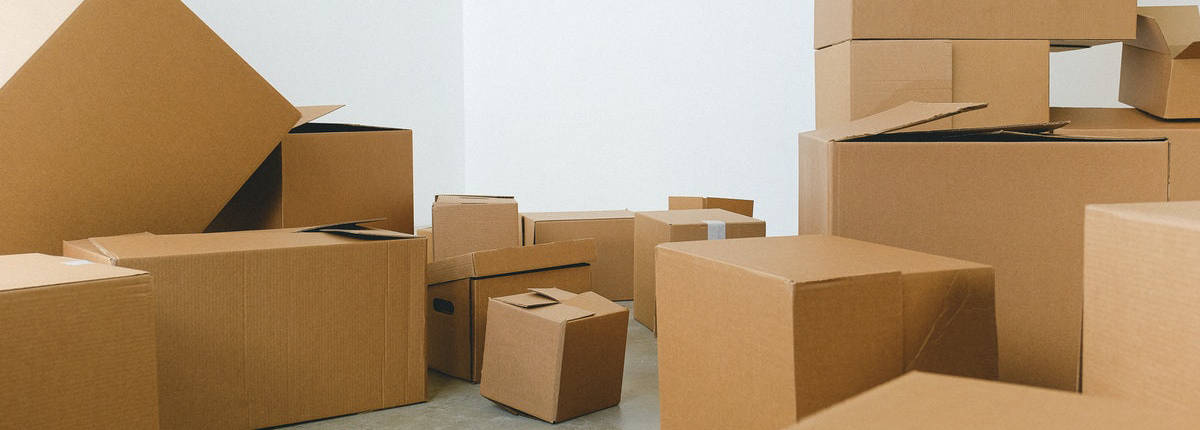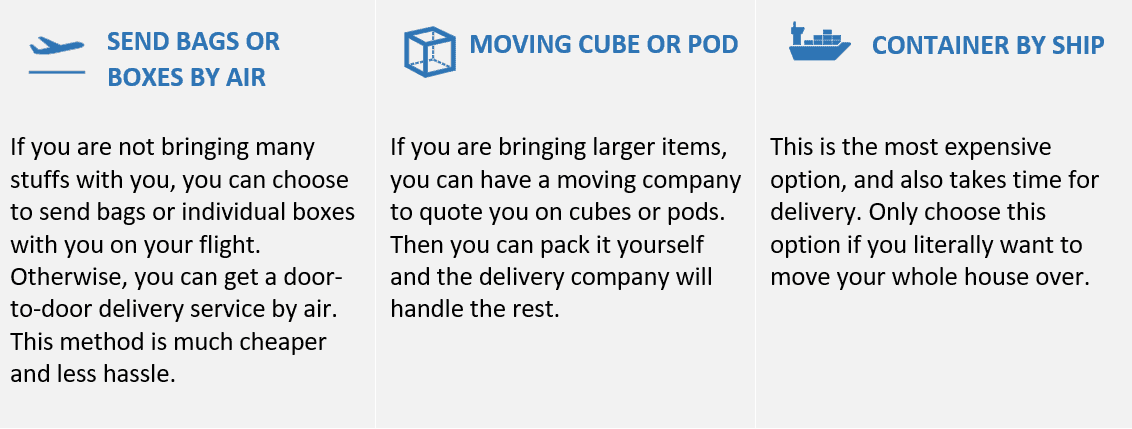Moving to live in Australia is a big step in one’s life. Whether you are moving temporarily or permanently, the big questions are always how to bring your belonging over and what are allowed into the country.
This article will give you some ideas on how you can move your belongings to Australia, and what you can and cannot bring into Australia.
Moving your belongings to Australia
Depending on the period of time you will be spending in Australia, you can decide what to bring. If you are to live in Australia for a longer period of time, you are likely to bring much more stuffs from your home country with you.
Please keep in mind that Australia is a multicultural country. You can find almost all of the stuff from your country in Australia. This not only saves costs of transportation, but also reduces your stress while moving.
There are several methods you can choose to move your belongings
Contact us today for a relocation service that offers you all solutions to bringing your belongings.
What you can and cannot bring to Australia?
Australia has a very strict biosecurity rules in place for what is and isn’t allowed into Australia. If you are bringing stuffs that are not allowed in Australia without declaring it, you may face heavy penalty and more seriously, have you visas cancelled due to incorrect information provided.
There is a long list of what you can and cannot bring to Australia, with or without import permit. Checking the list carefully before packing your stuff will help you to prepare for declaration and avoid any problems at the border.
What foodstuffs can I not take into Australia?
Foods that are prohibited unless accompanied by a valid Import Permit include beans, peas, cereal seeds, eggs, fresh fruit and vegetables, uncanned meat and all pork products, milk, popping corn, raw unroasted nuts, whole salmon and trout. Live animals, plants, biological materials, straw, raw wool, soil and sand are similarly prohibited. Pine cones, potpourri and straw objects must be treated and in some cases there may be a treatment cost.
All other foods including cakes, honey and seafood will be subject to inspection.
What can I take into Australia if I’m moving there permanently?
If you are relocating your entire household a professional packer or shipper will advise you of regulations. Generally no duties are payable on personal effects, though individuals should be aware of rules governing alcohol and items purchased in the 12 months prior to migrating. Wooden items, including furniture, will be inspected on arrival in Australia and may need to be treated.
Can I take my cat or dog into Australia?
Some breeds are ineligible for importation to Australia – a list is available at the Department of Agriculture and Water Resources website. Otherwise you do not require an Import Permit for your pet but the animal must be accompanied by a Veterinarian’s certificate and a Statutory Declaration as to its history. If all procedures are correctly followed there is normally no quarantine period.
Please refer to our article on Bringing your Pets to Australia for more information.
What do I need to do to take my car or motorbike into Australia?
Importing a motor vehicle involves careful consideration of regulations administered by the Australian Customs Service and the Federal Office of Road Safety. The High Commission or Consulate-General can provide copies of the relevant sets of papers on request or you can access these via the links listed below. Vehicle owners also need to factor in advice from shipping agents as to other costs.
Can I take medicinal products into Australia?
It is advisable to have a letter or a prescription from your doctor or practitioner describing the medication and your medical condition. Some medicinal products may require an import permit or quarantine clearance.
What do I need to declare on my passenger travel card?
Generally speaking, the following must be declared:
- Goods that may be prohibited or subject to restrictions, such as medicines, steroids, firearms, weapons of any kind and illicit drugs.
- Any alcohol above the 2.25 litres limit.
- Any tobacco products or cigars over the limit of 50 grams, or 50 cigarettes.
- Overseas/ duty free goods with a combined total price of more than AU$900, including gifts.
- Goods or samples for business or commercial use.
- Currency of AU$10,000 or more.
- Food of any kind, traditional medicines or herbs.
- Plants, parts of plants, wooden articles, seeds, bulbs, straw, nuts and any animals or animal material.
- Soil or articles with soil attached.
Related:







National Innovation Visa – South Australia Criteria
Iran Visa Support – Australia
Immigration updates (Skilled, Employer and family visas) June 2025
National Innovation Visa – NSW Criteria
Registering as a Midwife in New Zealand (Non-AU/NZ Trained Applicants)